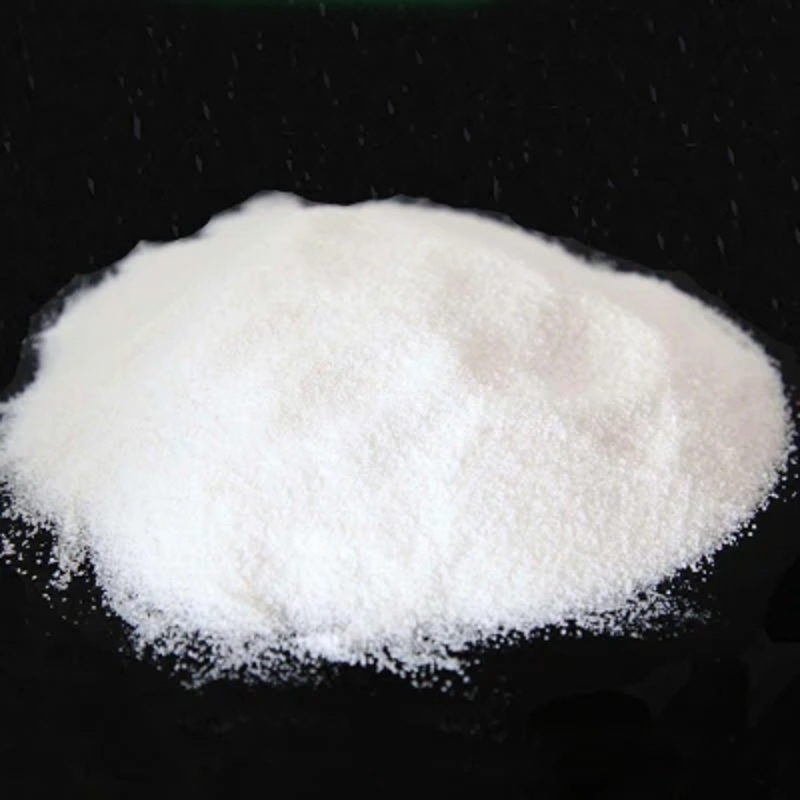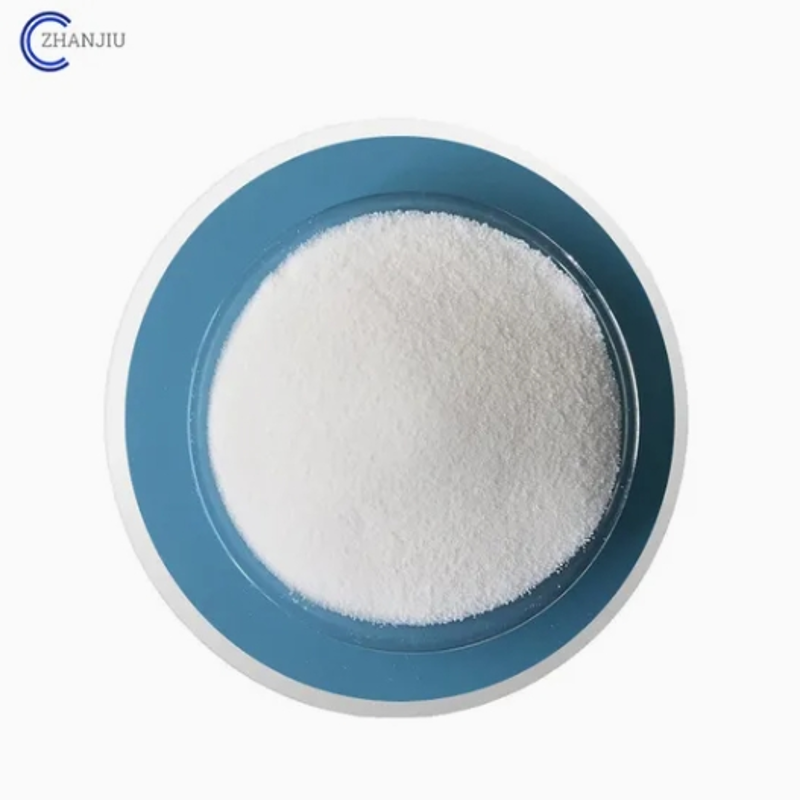-
Categories
-
Pharmaceutical Intermediates
-
Active Pharmaceutical Ingredients
-
Food Additives
- Industrial Coatings
- Agrochemicals
- Dyes and Pigments
- Surfactant
- Flavors and Fragrances
- Chemical Reagents
- Catalyst and Auxiliary
- Natural Products
- Inorganic Chemistry
-
Organic Chemistry
-
Biochemical Engineering
- Analytical Chemistry
-
Cosmetic Ingredient
- Water Treatment Chemical
-
Pharmaceutical Intermediates
Promotion
ECHEMI Mall
Wholesale
Weekly Price
Exhibition
News
-
Trade Service
Recently, Wang Qiang's team from the Institute of Agricultural Products Processing of the Chinese Academy of Agricultural Sciences published an online publication entitled "New Research Development on Trans Fatty Acids in Food: Biological Effects, Analytical Methods" in the internationally renowned academic journal Progress in Lipid Research (Region 1, Chinese Academy of Sciences, IF: 14.
673), Formation Mechanism, and Mitigating Measures", which is an important achievement of the team in recent years in the research of trans fatty acids (TFAs), for the first time, systematically summarizes the latest biological effects, analysis methods, formation mechanisms and reduction measures of TFAs in food from biological and chemical perspectives, and promotes the progress of
food TFA research 。 Li Tian and Qu Yang, associate researchers and 2020 doctoral students of the Institute of Agricultural Products Processing of the Chinese Academy of Agricultural Sciences, are the co-first authors of the paper, and researcher Wang Qiang is the corresponding author
of the paper.
Trans fatty acids (TFAs) are unconjugated unsaturated fatty acids (UFAs) containing at least one trans double bond, and long-term intake of TFAs will cause various diseases
in humans and animals to a certain extent.
Over the past decade, countries have implemented a number of policy actions to limit the amount of TFAs in foods and reduce their intake
.
WHO studies have shown that excessive intake of TFAs (1% of total energy intake >) will cause more than 500, 000 deaths from coronary heart disease each year and increase the risk of heart disease by 21% and increase mortality by 28%, attracting global concern
.
To address this, the WHO published an action plan on 14 May 2018 to eliminate industrially produced trans fats
from the global food supply by 2023.
Therefore, people's intake of TFAs should be reduced
as much as possible.
This paper summarizes and introduces
the latest developments in the biological effects, analysis methods, formation and reduction measures of TFAs in food from the biological and chemical perspectives.
Special emphasis was placed on the research progress on hazards of each isomer of TFAs, new analytical methods for rapid and easy-to-use, formation mechanisms and dynamics, possible reduction mechanisms, and new/improved mitigation measures during the period 2015-2021
.
In terms of the biological effects of TFAs, the potential correlation
between the isomers of TFAs and cardiovascular disease, coronary heart disease, cancer, diabetes, obesity, etc.
was summarized.
In terms of TFAs analysis methods, in addition to optimized pretreatment and improved IR, GC/GC-MS, HPLC/HPLC-MS, RS, and NMR, rapid pretreatment, TOF-MS, UPLC/UPLC-MS, UPC2-MS, GC-combustion-IRMS and GC-VUV technologies significantly improve the analysis speed and efficiency
of TFAs in various foods 。 At the same time, some newly established GC-FTIR, GC-NMR, RP-HPLC-FTMS, HPLC-ESI-Q-TOF, UHPSFC and online visibl-NIR broaden the method selection of
TFAs analysis 。 In terms of the formation mechanism of TFAs, the mechanism of free radical isomerization (oxidative isomerism, hydrogen pumping isomerization and direct isomerization) was summarized in depth, focusing on the newly proposed proton transfer isomerization mechanism, and emphasizing the importance of transition states and intermediate structures.
Recognized and new factors affecting the formation of TFAs in food are discussed in detail; Some newly established dynamic models
are also introduced.
In terms of TFAs reduction, the measures and possible reduction mechanisms of TFAs in food were systematically elaborated.
In addition to recognized reduction measures, the use of exogenous additives such as N2 and antioxidants is also an effective way to
reduce TFAs.
Looking ahead, stable, rapid, easy-to-use, low-cost/online methods will be the focus of TFAs detection methods.
The oxidative isomerization, direct isomerization, hydrogen pumping isomerization and addition isomerization of UFAs, especially polyunsaturated fatty acids (PUFAs), such as C18:2 and C18:3, still need to be further explored.
With the continuous improvement of TFAs reduction measures, the reduction mechanism needs to be studied urgently, and effective measures to effectively inhibit TFAs and maintain suitable sensory quality of food should be further explored, and the impact of
additives on food safety should be paid attention to.
Project Funding:
This study was supported by the Xinjiang Autonomous Region Key R&D Program (2021B02003-4, 2021B02003-3), the National Natural Science Foundation of China (31772097, 31271851), the National Key R&D Program of China (2017YFC1600600, 2016YFD0400200) and the China Postdoctoral Fund (2014M561105, 2015T80158
).
About the author
Wang Qiang, second-level researcher, doctoral supervisor, academician of the International Academy of Food Sciences, effective candidate for the 2021 Chinese Academy of Engineering academician co-election, shortlisted in the "Global Top 2% Top Scientists List".
He is currently the chief expert of the innovation team of plant protein structure and function regulation of the Chinese Academy of Agricultural Sciences, the director of the National Flower Production Technology System Processing Research Office, and a member of the Central Agriculture and Forestry Committee of
the Jiusan Society 。 National outstanding scientific and technological workers, the first batch of outstanding talents in agricultural scientific research in the country, advanced individuals in national science and technology to help precision poverty alleviation, selected into the national "Millions of Talents Project" and won the honorary title of "young and middle-aged experts with outstanding contributions", enjoying the special allowance of the State Council, leading talents of Shennong of the Ministry of Agriculture and Rural Affairs, leading talents of the Chinese Academy of Agricultural Sciences, president of the Peanut Food Branch of the Chinese Cereals and Oils Society, vice chairman of the plant-based food branch of the Chinese Society of Food Science and Technology, Journal of Integrative Executive Editor of Agriculture, Editorial Board Member of NPJ Science of Food, Guest Editor
of Foods 。 He has been engaged in scientific research in the field of grain and oil processing and nutrition and health for a long time, and for the first time constructed a peanut processing suitability evaluation technology, screened out special varieties for processing, and solved the bottleneck problem of mixed harvesting and mixed use of peanuts and poor product quality in China.
Subverted the traditional pressing technology and method, established the first domestic low-temperature peanut oil production and protein co-production production line, developed a series of high-quality new products, and promoted the high-quality development of the peanut processing industry; For the first time in the world, a new theory of "layered superposition" of protein fiber structure formation in the process of high moisture extrusion was proposed, a subversive processing technology of plant-based meat products based on high moisture extrusion was created, and intelligent processing equipment and visualization platform were innovatively designed, leading the direction of industrial development
.
He has presided over more than
40 national projects such as the "13th Five-Year Plan" National Key R&D Program (Basic Research), the National Natural Science Foundation of China, 863, and the Public Welfare Agricultural Industry Scientific Research Project 。 As the first completer, he won the second prize of National Technological Invention Award in 2014, the first prize of China Agricultural Science and Technology Award in 2013 and 2019, the "Excellent Innovation Team Category" of the 2015 China Agricultural Science and Technology Award, the highest academic award of ICC in 2012, the China Patent Excellence Award in 2014, the special prize of the Science and Technology Award of the China Federation of Commerce in 2017, and the top ten new equipment in China's agriculture and rural areas in 2019 The proposal of "vigorously promoting the high-quality development of China's flower production industry" has been approved by the leaders of the CPC Central Committee and the State Council respectively
.
More than 90 invention patents (including 12 international patents), 12 software copyrights, 9 national and industry standards have been revised and revised, 12 books (3 English monographs) have been published, and more than 330 academic papers have been published, including 120 SCI papers, 57 JCR Region 1 papers, 2 ESI top 1% highly cited papers in the world, 1 F5000 highly cited paper, with a total impact factor of 792, nearly 3,000 citations, and more than 100 master's and doctoral students, postdoctoral fellows and foreign students
。
Qin Guo, Ph.
D.
/Associate Researcher, Master Supervisor
.
He has presided over 13 projects
, including the National Natural Science Foundation of China, the sub-project of the 13th Five-Year Key Research and Development, the key funded project of the China Postdoctoral Fund, the general project of the China Postdoctoral Fund, and the general project of the Beijing Natural Science Foundation 。 He won the 3rd Youth Science and Technology Award of the Chinese Cereals and Oils Society in 2022, the first prize of Shennong China Agricultural Science and Technology Award in 2019, the second prize of Science and Technology of the Chinese Cereals and Oils Society in 2015 and 2020, and the "Excellent Postdoctoral Fellow" of the Chinese Academy of Agricultural Sciences in 2014; He has published 76 high-level academic papers in Progress in Lipid Research (IF:14.
673), Journal of Cleaner Production (IF:11.
071), Food Chemistry (IF:9.
231) and other journals, applied for 50 invention patents (3 international patents), 23 authorized invention patents (2 international patents), and authorized 1 utility model patent; Obtained 1 software copyright; Participated in the formulation and revision of 4 national standards and 3 agricultural industry standards; Editor-in-chief of 1 monograph, deputy editor of 1 monograph, co-editor of 3 monographs; Guest editor
of the journal Foods (IF: 5.
561).
Li Tian, a 2020 doctoral candidate at the Institute of Agricultural Products Processing of the Chinese Academy of Agricultural Sciences, has won honors
such as Beijing Excellent Graduate and Beijing Sanyoshi Student.
His main research direction is the inhibitory effect of resveratrol on trans fatty acids in peanut oil and its mechanism, and he has participated in 3
national projects such as the National Natural Science Foundation of China and the National Key Research and Development Program 。 In the past five years, he has been the first author in Progress in Lipid Research (1, IF: 14.
673), Food Chemistry (3, IF: 9.
231), LWT-Food Science and Technology (1, IF: 6.
056), and International Journal of Food Science and Technology (1 , IF: 3.
612), food science and other well-known journals in the field of food science and engineering published 8 SCI/EI papers with a cumulative impact factor of 52.
03; applied for 10 national invention patents, including 6 authorized invention patents (2 international patents) and 1 authorized utility model patent; Participated in the compilation of
1 book.
Qu Yang, a 2020 doctoral candidate at the Institute of Agricultural Products Processing of the Chinese Academy of Agricultural Sciences, won the 2022 National Scholarship for Doctoral Students and the 2020 Postgraduate Autonomous Region Scholarship
.
His main research direction is the modification of oleoprotein and its regulatory mechanism, and he has participated in 4
projects such as the National Agricultural Science and Technology Innovation Project of the Ministry of Science and Technology and the Key R&D Program of Xinjiang Autonomous Region 。 In the past five years, he has published 7 SCI/EI papers in well-known journals in the field of food science and materials engineering, such as Progress in Lipid Research (IF:14.
673), Journal of Cleaner Production (IF:11.
071), Foods (IF:5.
561), and Forestry Science.
He has applied for 6 national invention patents, including 2 authorized invention patents and 1 authorized utility model patent
.







